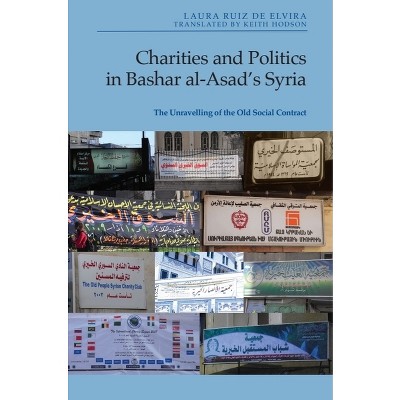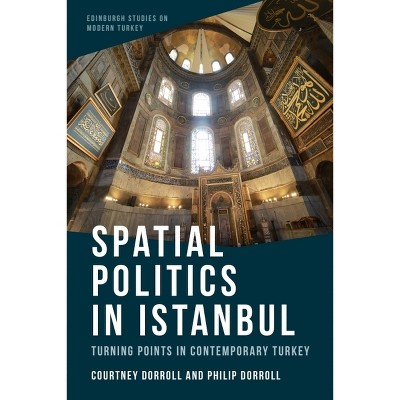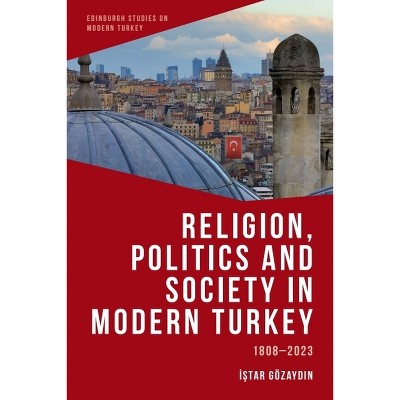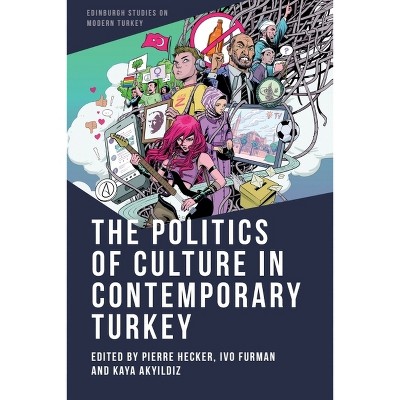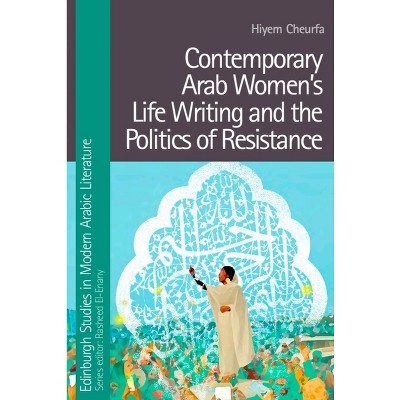Authoritarianism and Kurdish Alternative Politics - by Latif Tas (Paperback)

About this item
Highlights
- Latif Tas investigates the triangular relationship between nationalism, justice and gender politics to explore how influencing this dynamic allows authoritarian rulers to stay in power for longer and justify their actions for monopolising power.
- About the Author: Dr. Latif Tas is Marie-Curie Global Fellow at SOAS, UK.
- 344 Pages
- Political Science, World
Description
About the Book
Latif Tas investigates the triangular relationship between nationalism, justice and gender politics, to explore how influencing this dynamic allows authoritarian rulers to stay in power for longer and justify their actions for monopolising power.
Book Synopsis
Latif Tas investigates the triangular relationship between nationalism, justice and gender politics to explore how influencing this dynamic allows authoritarian rulers to stay in power for longer and justify their actions for monopolising power. Based on ethnographic research in Turkey, Syria, and Iraqi Kurdistan, as well as Kurdish diasporas in Europe, the book examines how communities challenge existing state power, authoritarianism and control. It focuses on alternative legal and political practices established by the PKK (Kurdistan Worker's Party) such as local policing, informal judicial mechanisms and taxing, and shows how this divergence from state-led systems forges a sense of community among Kurds and creates a de-facto parallel state. It pays particular attention to the Kurdish political movement's success in achieving its aim of redressing gender-based injustices to create an equal society.
Review Quotes
Betrayed by almost everyone, the Kurdish people have developed a politics of self-reliance and an innovative, democratic and feminist, nationalism. In this book, Latif Tas provides a rigorous ethnographic and political account of what the Kurds have done. Focused on Turkey and Syria, Tas's analysis is wonderfully toughminded, appreciative of the "Kurdish alternative" but also critical of its shortcomings. This is a major contribution to our understanding of the Middle East.
--Michael Waltzer, Professor of Social Science, Institute for Advanced Study, Princeton, USAIn a time when Erdogan's Turkey has come to epitomize brutal authoritarianism, Latif Tas deciphers the logics of power at work in this regime, contrasting them with the invention of an alternative form of governmentality in Kurdish territories. Exploring justice worlds, human rights, and gender relations, his imaginative ethnography is a fascinating invitation to rethink politics in the region.
--Didier Fassin, The James D. Wolfensohn Professor at the Institute for Advanced Study, PrincetonIn times of oligarchical political systems sourced to the corrosion of trust and hope across the globe, Latif Tas has a fascinating tale about defiance, how sovereign people can still radicalize democracy in opposition to state power and authoritarian rule. With deft ethnographic sensibility, Tas opens a path forward for rethinking governmentality in his remarkable account of a uniquely Kurdish alternative.
--Lena Lavinas, Professor, Federal University of Rio de Janiero, BrazilKurds are among America's best friends globally with whom western countries share both values and strategic interests. The dynamic of Kurdish international relations is explored on these pages. Authoritarianism and Kurdish Alternative Politics is a "must-read" for faculty, students and followers of the Middle East.
--David L. Phillips, Professor, Director, Institute for the Study of Human Rights, Columbia UniversityOver the past decade two phenomena have come to define the Kurdish conflict: the consolidation of Turkey's surveillance state and the Kurdish movement's harnessing of gender politics. In this charged space between Turkish drones and the compelling figure of the Kurdish female fighter, Latif Tas brings the recent transformations in Kurdish politics into focus. His ethnography is both intimate and critical, with a healthy dose of analytical distance. A must-read for scholars of authoritarian politics and the role of gender in contemporary forms of resistance.
--Mucahit Bilici, Associate Professor of Sociology, John Jay College and CUNY Graduate CenterTaş offers a profound critique of authoritarian politics and refreshing analysis of the rising threat of democratic backsliding from a global perspective. His prescriptions for democratic restoration and his innovative theoretical framework for alternative governmentality, rich ethnography and unique methodology make this book required reading for students of comparative politics, gender studies, and socio-legal studies.
--Yüksel Sezgin, Associate Professor, Director of Middle East Studies, Syracuse UniversityTas walks you through the Kurdish streets while conversing with Kurdish activists, former female PKK fighters, Assyrians, ordinary people, and Turkish police. This well-written ethnographic study devoid of academic jargon, presents a critical approach to the Turkish state and Kurdish political movement. Undoubtedly, this book will be a great source to the interested public and enrich MENA syllabuses in general and Kurdish studies in particular.
--Ekrem Karakoc, Associate Professor, Binghamton University (SUNY)The intellectual audacity shown here by the author, by relying on a methodology that allows him to draw very directly on unpublished sources, deserves to be praised. This boldness is the hallmark of an author who no longer needs to prove himself when it comes to demonstrating how close he is to his subject while knowing how to preserve his intellectual and scientific autonomy.
--Marie-Claire Fablets, Professor, Director of Max Planck Institute for Social AnthropologyThis is a heartfelt cry against the depredations of authoritarian rule and the resulting sufferings of the Kurds past and present. Latif Tas has the keen journalistic sensibilities of someone who, having listened empathetically to anyone and everyone, is able piece together a compelling story, and who possesses the historical memory to put it all in context.
--Webb Keane, George Herbert Mead Collegiate Professor, University of MichiganWe constantly need to understand the nature and evolution of authoritarian regimes. We must understand how these regimes disrupt lives and how people react to them. Latif Tas' book contributes to this important endeavor by focusing on Kurds' stories. Tas' approach is direct, aimed at comprehending the everyday struggles of people.
--Antonio De Lauri, Research Professor, Chr. Michelsen Institute (CMI)About the Author
Dr. Latif Tas is Marie-Curie Global Fellow at SOAS, UK. He has also been Member at the Institute for Advanced Study (IAS), Princeton (2019/2020), US. With a PhD from the Law Faculty, Queen Mary University of London (2012), he is a Social Scientist studying political violence, social justice, authoritarianism, social movements, migration and gender. He has been doing ethnographic research in Turkey, Germany, the UK, Iraq and Syria for last 13 years and has published extensively. His articles have appeared in many scholarly journals such as Nation and Nationalism, Third Wold Quarterly, Cambridge Journal of Law in Context, Journal of Middle East Women's Studies, International Journal on Minority and Group Rights, the Journal of Legal Pluralism and Unofficial Law, Dissent and the Journal of Balkan and Near Eastern. His political commentaries published such as in Open Democracy, Public Anthropologist and the Brussels Times. He is also the author of Legal Pluralism in Action: Dispute Resolution and the Kurdish Peace Committee (Routledge, 2016).






